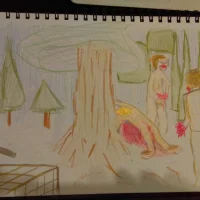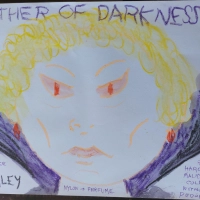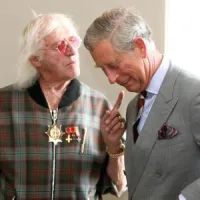All applications for leave to appeal and appeals against sentence were turned down.
Redaction
Some reports have had victims names redacted and some assault details redacted.
This is a difficult balance- normally I would think that I should not “censor” details but on consultation with various people I have taken the decision to redact. This is mainly to protect victims, their friends and relatives from unnecessary detail and to stop the gratification of those who seek salacious details.
In addition to the obvious “victims redaction” to protect victims details, there may also be “assault redacted” across most of the spectrum of abuse. The assaults are left in the charges, but mainly redacted when repeated with reference to the individual. I have also redacted unnecessary detail of assaults.
Redaction may obscure sometimes the legal reason for the appeal, but should make no large difference to the vital information for researchers that these documents contain. That vital information is mainly names of the perpetrators, past addresses, institutions where assaults occurred, the actual charges the perpetrators faced, and dates – on which newspapers are pathetically inaccurate and this information enables the links between people and places and abuse at various times to be ascertained.
Some transcripts may have been subject to automatic reading softwware and whilst effort has been made to correct these, the text should not be regarded as definitive.
If you think that the balance is not correct or that a particular redaction needs reconsideration, please say.
Index of Newspaper and Journal articles on this blog [1]
Index of Court Appeals on this blog [2]
[2001] EWCA Crim 895 No: 99/7439 00/451/619/3896/X1
IN THE COURT OF APPEAL
Friday 30th March 2001
Lord Justice Longmore
Regina v Brian Stewart Greenroyd, Alan Ernest Tanner, Christopher Leek, Kevin Paul Warfield
Computer Aided Transcript of the Stenograph Notes of Smith Bernal Reporting Limited 190 Fleet Street, London EC4A 2AG Tel No: 020 7421 4040 Fax No: 020 7831 8838 (Official Shorthand Writers to the Court)
MR WILLIAM HART appeared on behalf of the APPLICANT GREENROYD
MR STEPHEN MOONEY appeared on behalf of the APPELLANT TANNER
MR NICHOLAS FOOKS appeared on behalf of the APPLICANT LEEK
MR DEAN ARMSTRONG appeared on behalf of the APPLICANT WARFIELD
MR MARTIN STEEN appeared on behalf of the CROWN
JUDGMENT (As Approved by the Court)
Friday 30th March 2001
- LORD JUSTICE LONGMORE: We have various appeals and applications in front of us this morning, all stemming from a police operation known as ‘Operation Panorama’, a large-scale investigation by Avon and Somerset police into paedophile activity in the Bristol area between 1985 and 1997, which led to a series of cases in the Crown Court at Bristol before His Honour Judge Dyer, the Recorder of Bristol, which involved some eleven defendants and a consolidated indictment containing some 83 counts. We will deal with matters in relation to conviction first.
- Mr Greenroyd was convicted on one count, count 29, of indecent assault on a male and was sentenced to seventeen months’ imprisonment. He has applied for leave to appeal and been refused by the single judge. The application is now renewed with the assistance of Mr Hart of counsel.
- Mr Tanner was convicted of many more offences. For the purposes of the appeal against conviction we need only mention count 2, which was indecent assault on a male, for which he was given a sentence of three years. The single judge gave him leave to appeal.
- That application of Mr Greenroyd and the appeal of Mr Tanner will be the first matters that we will consider.
- As far as Mr Greenroyd was concerned, it was alleged that he indecently assaulted [A] , who was born on [redacted], on a day between [redacted] 1988 and [redacted] 1990, when A reached his 16th birthday. Of course the defence of consent to an allegation of indecent assault would be applicable after A reached his 16th birthday but not before.
- A gave evidence. When he was 13, he said, he used to go to Anchor Road a few times a week. He got money for sexual favours to men. When he was 14 or 15 he ran away and used to play the fruit machines. He would stay overnight at the flat of a Mr Clarke. A couple of times they masturbated each other and A was paid. Greenroyd, he said, was Clarke’s boyfriend. On one occasion they were all in bed together and engaged in masturbation. It was thus clear in his evidence in chief that he was under 16 when the occasion with Mr Greenroyd occurred.
- He was cross-examined on behalf of both Mr Clarke and Mr Greenroyd. We have no transcript of that cross-examination but we take it from Mr Hart, who encapsulated what happened in cross-examination in a skeleton argument to the judge at the close of the prosecution case; it was put to N on behalf of Clarke that the incident could have occurred, and indeed did occur, at Bath Road in about December 1990. Mr Griffiths answered “that might be right”. Then counsel for Mr Greenroyd again repeated that and got the answer that “it could have happened at Bath Road; it could well have been in about December 1990 or thereafter”. In reexamination, he again repeated what he had said in chief, namely that it happened when he was about 15-and-a-half, or before 15-and-a-half, when he went to London.
- So, in those circumstances, Mr Hart submits that the evidence of the only witness on the only relevant count was so tenuous or self-contradictory that the judge should have stopped the case on this particular count at the end of the prosecution case. He relies on the well-known cases of Galbraith and Shippey , and in particular he relies on the limb (2) (a) of Galbraith :
“The difficulty arises where there is some evidence but it is of a tenuous character, for example, because of inherent weakness or vagueness or because it is inconsistent with other evidence. (a) Where the judge concludes that the prosecution evidence, taken as its highest, is such that a jury properly directed could not properly convicted on it, it is his duty, on a submission being made, to stop the case.”
- Mr Hart also relies on Shippey , which is accurately set out at paragraph 4-295 of Archbold, where Turner J said:
“The judge should assess the evidence and if the evidence of the witness upon whom the prosecution case depended was self-contradictory and out of reason and all common sense then such evidence was tenuous and suffered from inherent weakness.”
- Mr Hart’s short submission is that the evidence was self-contradictory and out of reason and all common sense. But he relies mainly on it being self-contradictory, and, for that reason, the judge should have stopped the case.
- We can only say that we disagree. This is a classic case where the evidence of the complainant, while not being necessarily in all respects the same in his examination in chief and cross-examination, could not possibly be said to on be its face self-contradictory. The jury would have to assess the evidence. It is an archetypal sort of case where the jury has to assess the evidence, and indeed assess the evidence of and on behalf of the defence if the case passes the end of the prosecution case. His Honour Judge Dyer, in our view, rightly left that matter to the jury.
- The case of Tanner is not dissimilar to the case of Greenroyd. It is only count 2 which is relevant for that purpose. In relation to that count, the allegation was one of indecent assault with a boy called [B]. He was born on [redacted] and became 16 on [redacted] 1984. He was examined in chief. As far as the account concerning Mr Tanner is concerned, there is this exchange between Mr Barton QC, who acted for the Crown, and the boy [B]:
“Q. Where did you meet him?
A. Down the toilets at Anchor Road.
Q. What age were you when you first met him?
A. [Aged] 14
Q. Did you do any business in the sense of having sex with him?
A. Yes
Q. To begin with, where?
A. To start with, down in the toilets at Anchor Road.
Q. What form did the sex take to begin with?
A. Masturbation.”
13. Mr Mooney, who appears on behalf of Mr Tanner on this appeal, relies on the cross-examination conducted by Mr Tabor (then his leader) on behalf of Tanner. The cross-examination started with a description of the place, [redacted and different to no.35] Wroughton Drive. That was relevant because it was said that indecency had taken place at 35 Wroughton Drive but that Mr Tanner had not taken up the tenancy of 35 Wroughton Drive until April 1985. So the cross-examination began by asking [B] about those premises and then continued:
“Q. And you had met him a little earlier down at Anchor Road?
A. Yes.
Q. About a month earlier, something like that?
A. Yes.
Q. You say that sex took place down at Anchor Road as well some two months before you went to Wroughton Drive?
A. Yes.
Q. Now, I put it to you that I do not accept on his behalf that, although I accept that there was sexual activity between you and him at Wroughton Drive. That is not a very good question, let me have another go at it. I accept that there was sexual activity between you and him at Wroughton Drive but I do not accept, on his behalf, that two months earlier to going to Wroughton Drive or at any stage did he have sex with you down at Anchor Road. What do say to that?
A. He did have sex with me down Anchor Road.”
14. Mr Mooney now seeks to build on that effectively an admission by B that, for that reason, when the sex was had at Anchor Road he must have been over 16.
15. That is putting far more weight on that cross-examination than it can bear. Mr Mooney was constrained to half accept that when it was put to him, and reduced his submission to saying: overall, there is a lack of clarity in the evidence.
16. We do not see it in that way. The evidence in chief was certainly entirely clear. If the jury thought that there was any doubt about whether B was over or under 16, they would have come to the conclusion that the sex at Anchor Road should not be a matter of which they should convict Mr Tanner. Indeed, they appear to have taken that view with regard to two other defendants about whom B was clear that the sex with them took place at a later date.
- Mr Mooney seeks to build on that by saying that there is a risk of inconsistent verdicts because how, if they acquitted the other two, he submits, can they not have acquitted Mr Tanner?
- The answer to that is the jury looked at the matter with considerable care. They decided that they were sure that B was under 16 when he had sex with Mr Tanner and were not sure that he was under 16 when he had sex with the other two defendants.
- If anything, the appeal is, in our judgment, even more hopeless than the application made on behalf of Mr Greenroyd. It gets nowhere near the test of Galbraith . For those reasons, the application and the appeal against conviction will be dismissed.
MR HART: Could I venture one ancillary application? It is this. Normally, of course, when a renewed application is refused, legal aid is not granted. In this case there is a slight inconsistency, in my submission: Tanner had leave to appeal and legal aid extended; Greenroyd had it refused. As I read the regulations, your Lordships are empowered to grant legal aid for today’s hearing. I make that application on my behalf, bearing in mind the respective positions of the appellant and the applicant.
LORD JUSTICE LONGMORE: Normally we would be minded to refuse it because it only encourages hopeless applications if legal aid is granted. There is the curiosity here – and perhaps this is a suitable time to ventilate it – that one of the appeals against sentence is a Registrar’s reference. That is you, Mr Armstrong, for Warfield, is it?
MR ARMSTRONG: My Lord, yes.
LORD JUSTICE LONGMORE: Did he grant you legal aid?
MR ARMSTRONG: He did, yes. I was granted leave by the single judge, I thought.
LORD JUSTICE LONGMORE: You were granted legal aid by the single judge?
MR ARMSTRONG: Yes, that is my understanding. If I am wrong..
LORD JUSTICE LONGMORE: That is not our understanding. Do you have anything in writing to say that you were granted leave by the single judge?
MR ARMSTRONG: My Lord, yes. I can hand up, if your Lordship wishes, the brief, as it were. Inside the brief, in the inside slip there, it says:
“Appeal against sentence by leave of the single judge.”
That is highlighted. I accept I do not have any single judge’s comment, which is unusual.
LORD JUSTICE LONGMORE: (Same handed.) It is fairly clear to us that you have come here by virtue of a Registrar’s reference, which I assumed, possibly wrongly, was because your application was made later than the others and these cases were already pending and the Registrar thought that rather than sending it off to a section 31 judge in the normal way it might as well be something this Court dealt with at the same time as other matters.
MR ARMSTRONG: I saw the matter highlighted there, my Lord, and I thought that it was through the ordinary channels, if I can put it in those terms. But I do accept that I do not have any single judge’s comments, which is what one would normally expect to have.
LORD JUSTICE LONGMORE: Whose yellow marking is this?
MR ARMSTRONG: Not mine. It is certainly as it arrived with the brief.
LORD JUSTICE LONGMORE: Someone from the Office?
MR ARMSTRONG: Yes.
LORD JUSTICE LONGMORE: Anyway, you are here on legal aid for whatever reason, which is all we are concerned about at the moment. Now counsel for Mr Leek, what is your position?
MR FOOKS: I am extremely pro bono.
LORD JUSTICE LONGMORE: You are appealing pro bono. It seems a bit hard if there is a Registrar’s reference for another applicant. It would be different if there were leave from the single judge of course, but it does seem hard you should be pro bono if Mr Armstrong is not.
MR FOOKS: No, it is not hard I am afraid—if I can convince you it may become hard. But, you see, I am in a different position because I have actually had leave refused by the single judge.
LORD JUSTICE LONGMORE: I suppose that is right.
MR FOOKS: Therefore I am in a different position. But I would not want that to affect your judgment on Mr Hart’s application for legal aid. I certainly would not want that to be held against him. I come here at my own risk.
LORD JUSTICE LONGMORE: I will hand that back to you, Mr Armstrong.
MR ARMSTRONG: Thank you.
(The Bench conferred.)
LORD JUSTICE LONGMORE: We will grant you legal aid Mr Hart.
MR HART: My Lord, I am very much obliged.
(Submissions followed re: sentence appeal of Tanner, renewed application by Leek and referred application by Warfield.)
LORD JUSTICE LONGMORE: We have already explained that these matters arise from the large-scale investigation into the paedophile activity known as Operation Panorama. We dealt earlier this morning with matters relating to convictions and we now pass to sentence. There is one appellant and two applicants.
The appellant is Tanner. He has been granted leave to appeal by the single judge against his total sentence of nine years. That was comprised as follows: three years’ imprisonment for indecent assault on B; three years consecutive for indecent assault on another boy; one year concurrent for supplying Class B drugs, to which he had pleaded guilty; two years consecutive for living on the earnings of male prostitution, to which he had pleaded not guilty; indecent assault on another male, [C], for which he was given two years concurrent after a plea of not guilty; and then supplying Class B drugs and permitting premises to be used for smoking cannabis, for which he was sentenced to twelve months concurrent inter se but consecutive to the other sentences, making nine years’ imprisonment in total.
We have on the conviction appeal made reference to the facts of count 2 (the [B] count) which can be summarised for these purposes as performing oral sex at the Anchor Road toilet when B was under 16.
Count 7 related to C. Again it started at Anchor Road. C waited for his school bus there. Tanner would hang around the toilets. C was befriended by Tanner and went to a flat, where Tanner gave him cannabis (that is the subject matter of count 8) and indecently touched him. It was alleged that Tanner [assault redacted]. That is the subject matter of count 7. When C was about 15, Tanner took him to the Anchor Road toilets, where he was introduced to men for prostitution. Tanner would often take half his earnings and would wait in a side street and take the money, so that, as he put it, C “would not be mugged by his next punter”. Some of it (but by no means all of it) C got back. Tanner could tell C which men were safe. That was the subject matter of count 11 of the indictment.
Count 17, the C count. He met Tanner in the Canons Marsh area. Tanner took him for a drive. They smoked pot together. Tanner [Assault redacted]
The later count, count 76, relates to a supply of cannabis to [D], as well as to others, and people were allowed to smoke it at his premises.
Tanner did not give evidence at his trial, but he gave numerous interviews to the police at first, in effect, denying offences and later largely ‘no comment’.
As far as the applicant Leek is concerned, he pleaded guilty at the trial. The offences to which he pleaded guilty were: count 23, buggery of [E], for which he received six years’ imprisonment concurrent; count 34, buggery of [F], for which he received six years’ imprisonment concurrent; count 40, buggery of [G], for which he received seven years concurrent; and count 45, buggery of [H], for which he received four years’ imprisonment concurrent. He was further charged with supplying Class A drugs, count 37, and was given four years’ imprisonment consecutive; and on count 48, living on the earnings of male prostitution, he received one year’s imprisonment consecutive.
The short facts are that Leek met E at Victoria Station. He took the boy to an address in Church Hill Road, took him to his bedroom, where he [assault redacted] against his will. E said that, as a result, he had dark thoughts and wanted to kill Leek. He said he did not consent and he felt degraded.
F ended up naked in bed with Leek. Leek [assault redacted] which was count 34 of the indictment.
The next indictment by way of number, count 37, relates to an incident where a boy called [J] met Leek when he was between 14 and 16 years old. He went to Leek’s house and alleged that Leek supplied him with heroin, which he took on the premises. J said he was hooked in a couple of weeks.
Then count 40, the buggery of G. G, aged about 14 or 15, in care, met a man who shared a room with Leek. G stayed there for three weeks. On one occasion he was given heroin, which made him drowsy. Leek removed G’s shorts. Despite G saying ‘No’, Leek [assault redacted]. G was obviously under the influence of heroin; but the Crown did not seek to allege that the heroin was actually supplied by Leek on that occasion for that purpose.
Count 45, the H count. H met Leek, who had come to pick up boys at the Anchor Road toilets when he was 17. They took heroin and engaged in mutual masturbation. Then Leek [assault redacted], which caused him pain. When H asked him to stop, Leek [assault redacted] against his wishes. H’s response in evidence was that “It was the first time I had [assaulted redacted] and it is the last”.
Count 48, living on the earnings of male prostitution, related to [K] , who was living at Leek’s address. Leek told K how he could earn money and required him to sell his body or he would be out of Leek’s house. Leek would take him to the Anchor Road toilets and take the money which he was given by men. Apparently K gave Leek a motorbike. Leek asserted that that was K’s personal choice to give it to him.
We deal with with Tanner and Leek first, because Warfield’s application raises rather different considerations; it is important to note about Tanner that he is aged 61. He has three findings of guilt and 25 previous convictions, mainly for offences of dishonesty, but including sexual offences of indecency with males and one previous conviction for buggery, for which he was sentenced to five years together with other offences. Leek is now aged 44. He has no previous convictions.
When the learned judge came to the complicated sentencing exercise that he was required to undertake in respect of all the defendants who had pleaded or were convicted after the trial he said in general terms (and this Court endorses it) :
“it is essential to mark the great displeasure that everyone has who has had any contact with this case for persons who can move from one young man to another. They [the young men] may not be corrupted in the sense that they were doing what they were doing regularly at a young age and were doing it with other people and they were doing it for money, but the law is there to protect young people from themselves.”
And this, said to other defendants, followed:
“You, far from protecting them. Abused them and for that to my mind you must be punished.”
When he came to sentence Tanner and Leek he observed that they had indulged in very serious criminal offences against boys. They won power and influence over the boys by what the judge called “false kindness”. He said again that they had moved from one young man to another. The degree of control had persisted for a considerable time over the young men.
In relation to Leek, he said that he had picked up young men and supplied them with drugs. He used force to commit rape and buggery. He had pleaded guilty at the earliest opportunity and later said that he had been in denial when he had been interviewed. He said in relation to Leek that it was not Leek’s fault that the boys had to give evidence. He pointed out, what was the case, that Leek had given evidence for the Crown in two trials and, as a result of that, the mitigation to which Leek was entitled was to be increased.
As far as Tanner is concerned, the learned judge said that, while Tanner was not convicted of buggery, he had discovered the bus stop in Anchor Road for a bus going to a residential school and was able to divert the pupils into smoking and then talking, and then engaging in sexual favours for money, so that the boys became dependent on him and the other men. The learned judge pointed out that Tanner had a worse record than the others and could have no credit for a guilty plea. He took into account Tanner’s bad health, which was a matter of real consideration on the part of the judge.
Mr Mooney for Tanner now submits that nine years is too much for the sentence overall as a matter of totality. He also points out that the sentences for indecent assault for which Tanner received six years in all (made up of three years, three years consecutive and two years concurrent) are on the high side for, as he put it, consensual sexual activity, which is deemed to be an assault without any consent by virtue of the age of the three boys, B, [L] and C. He also submits that, at the same time as Tanner was being sentenced, Stevens got a sentence of eight years overall for counts which included buggery. Mr Mooney said that that must have left Tanner with a burning sense of injustice, in particular because Stevens had previous convictions for the compilation of pornographic videos in Portugal, which the judge appeared not to take into account, while taking Tanner’s own record into account. Mr Mooney accepted that, at the end of the day, his submission amounted to a complaint about totality.
When one pauses to see what the criminal conduct was of which Mr Tanner was found guilty, one finds that it is three separate indecent assaults on three separate boys on three separate occasions, and living on the earnings of prostitution, and the supply of a controlled drug, and permitting his premises to be used for the smoking of cannabis, and supplying cannabis on those premises. It seems to this Court that an overall sentence of nine years after a conviction, with the record that Mr Tanner has, cannot possibly be described as manifestly excessive. Indeed, this Court will go so far as to say that it seems to us a carefully composed sentence on the part of the learned Recorder which in all the circumstances was entirely correct.
As far as Mr Leek is concerned, who is an applicant to this Court for leave, Mr Fooks submitted that, although the learned judge in terms gave credit for the guilty plea being entered at what amounted, in all the circumstances, to the first realistic opportunity and purported to give credit for the assistance which Leek had given to the Crown, the credit which the learned judge gave cannot have been enough. He asks, in conclusion, whether a total sentence of 24 years, if there had been no assistance to the Crown and if there had been no plea of guilty but a trial, would not have been regarded by this Court as manifestly excessive.
What the learned single judge had to say about Leek’s case was this:
“The essential issue is whether it is arguable that a sentence totalling twelve years is manifestly excessive in your case. I have concluded that it is not so arguable. Your leading role in entrapping and sexually violating teenagers, doubtless causing them appalling emotional damage, required a lengthy sentence. The risk of reoffending is assessed as high. The drugs offence required a significant additional period of custody.”
We entirely endorse the remarks of the single judge and consider that the submissions of Mr Fooks did not give adequate recognition to the countervailing factor, as opposed to the pleas of guilty and the giving of evidence for the Crown, that Leek had been supplying heroin to young boys and one of the buggeries was of another boy who was at the time of the buggery under the influence of heroin. Despite his reference to Paget [1998] 1 Cr App R (S) 80 , Leckey [1999] 1 Cr App R (S) 57 and Attorney-General’s Reference No 4 of 1997 (Hetherington) [1998] 1 Cr App R (S) 96 , we remain of that view because those cases did not have the additional feature which we consider distinctly aggravates Leek’s offences, despite the mitigation which he has available to him. For those reasons, Leek’s application will be refused.
We come then to the application of Warfield, which is a Registrar’s referral, although Mr Armstrong, who appears on his behalf, asserts that he has been given leave by the single judge. He is unable to identify the single judge who gave leave, nor is he able to refer to any comments made in the course of the giving of such leave. We therefore proceed on the basis that, in the absence of any reasons being able to be given for leave having been granted, the Registrar has referred the application to the full court.
Warfield was tried on his own as a single defendant and was convicted on count 35 of committing gross indecency with a child, for which he was sentenced to two years’ imprisonment; and on count 44, indecent assault on a male, two years’ imprisonment concurrent; then for buggery of a boy called M, count 52, he was sentenced to four years’ imprisonment consecutive; and for buggery for N, he was also sentenced to four years’ imprisonment consecutive on two counts concurrent inter se, making a total sentence of eight years’ imprisonment.
The short facts in relation to those offences are that when F was 12 years old he met Warfield at a public toilet. Warfield took him to his address. They ended up naked and masturbated themselves in front of each other (that being count 35).
Count 44 related to G, who was about 15 when he was introduced to Warfield. On four or five occasions over a twelve month period he visited Warfield’s room and Warfield [assault redacted].
Count 52, the buggery count of M, who was already a rent boy, related to a visit to the public toilets by M when he was 15 or 16. He had sex with Warfield at Warfield’s flat. At first it was masturbation. They then [assault redacted]
Counts 54 and 55; N met Warfield when he was about 14 years old. Warfield asked for anal sex every time they met. Sometimes N said ‘yes’ and sometimes he refused, in which case Warfield would then masturbate him. Count 55 was a count of having anal sex on an occasion other than in count 54.
The position about Mr Warfield is that he was convicted and did not have the advantage of a guilty plea. He had three previous convictions involving one of which involved gross indecency and indecent assault on a male under 16. For that he was then conditionally discharged.
There was a pre-sentence report in which it was said that he continued to justify his behaviour, although he did accept that he pursued sexual contact with adolescent boys knowing it was wrong. He said he himself had been a rent boy from the ages of 13 and 16 and had had relationships with boys and men and women.
When the learned judge came to sentence Warfield, he said that Warfield had been involved in serious offences against boys with a carefully organised and executed paedophile ring. He did accept that Warfield had not used violence or turned any young man into a heroin addict. He ended by saying that all cases had to be looked at on their facts and he imposed the sentence which came to a total of eight years.
On this application Mr Armstrong on his behalf submits that eight years is too long since the buggeries were consensual buggeries and there was no reason for consecutive sentences to be imposed on Warfield merely because he had consensually buggered two boys on two separate occasions. He contrasted the case of Roberts, whom the learned Recorder sentenced also to four years for three buggeries, one of which was non consensual.
This Court does not have the advantage of any transcribed remarks made by the learned Recorder in the case of Roberts, so we know nothing about the details of Roberts’ case, but, as far as Warfield’s case is concerned, it does not seem to us to be arguable either that four years is too long for consensual buggery when there are two boys concerned, nor that it is arguable the sentences ought not to be consecutive. As a matter of structure in his sentence, the learned Recorder, while giving concurrent sentences on the indecency with F and the indecent assault on G, nevertheless imposed concurrent sentences. It seems to us that, despite the consensual nature of the buggery M and N, the overall sentence of eight years cannot possibly be criticised as being manifestly excessive. There is no arguable point in Warfield’s case either. Therefore his application for leave to appeal must be refused.
We would conclude this judgment by paying tribute to the Recorder of Bristol, His Honour Judge Dyer, for the manifestly fair and conscientious way in which he presided over what must have been a difficult trial and for the care he took in subsequently deciding what the appropriate sentences were.
Do you apply for legal aid, Mr Fooks; or do you have it?
MR FOOKS: I do not have it and I do not think I can really apply.
LORD JUSTICE LONGMORE: No.
MR FOOKS: Although I would like to.
LORD JUSTICE LONGMORE: Very well.
MR FOOKS: But thank you, my Lord, anyway.
Index of Newspaper and Journal articles on this blog [1]
Index of Court Appeals on this blog [2]
Please note that victims of abuse may be triggered by reading this information. These links are generally UK based.
- The Sanctuary for the Abused [A] has advice on how to prevent triggers.
- National Association for People Abused in Childhood [B] has a freephone helpline and has links to local support groups.
- Other useful sites are One in Four [C]
- and Havoca [D].
- Useful post on Triggers [E] from SurvivorsJustice [F] blog.
- Jim Hoppers pages on Mindfulness [G] and Meditation [H] may be useful.
- Hwaairfan blog An Indigenous Australian Approach to Healing Trauma [J]
- Survivors UK for victims and survivors of male rape or the sexual abuse of men [K]
- Voicing CSA group [L] helps arrange survivors meetings in your area
Links
[1] Index of Newspaper and Journal articles on this blog https://cathyfox.wordpress.com/2015/05/23/newspaper-stories-index-timeline/
[2] Index of Court Appeals EWCA on this blog https://cathyfox.wordpress.com/2015/05/08/a-timeline-of-court-and-ewca-documentation-on-cathy-fox-blog/













Pingback: Bristol Child Abuse Network 2000 | cathy fox blog